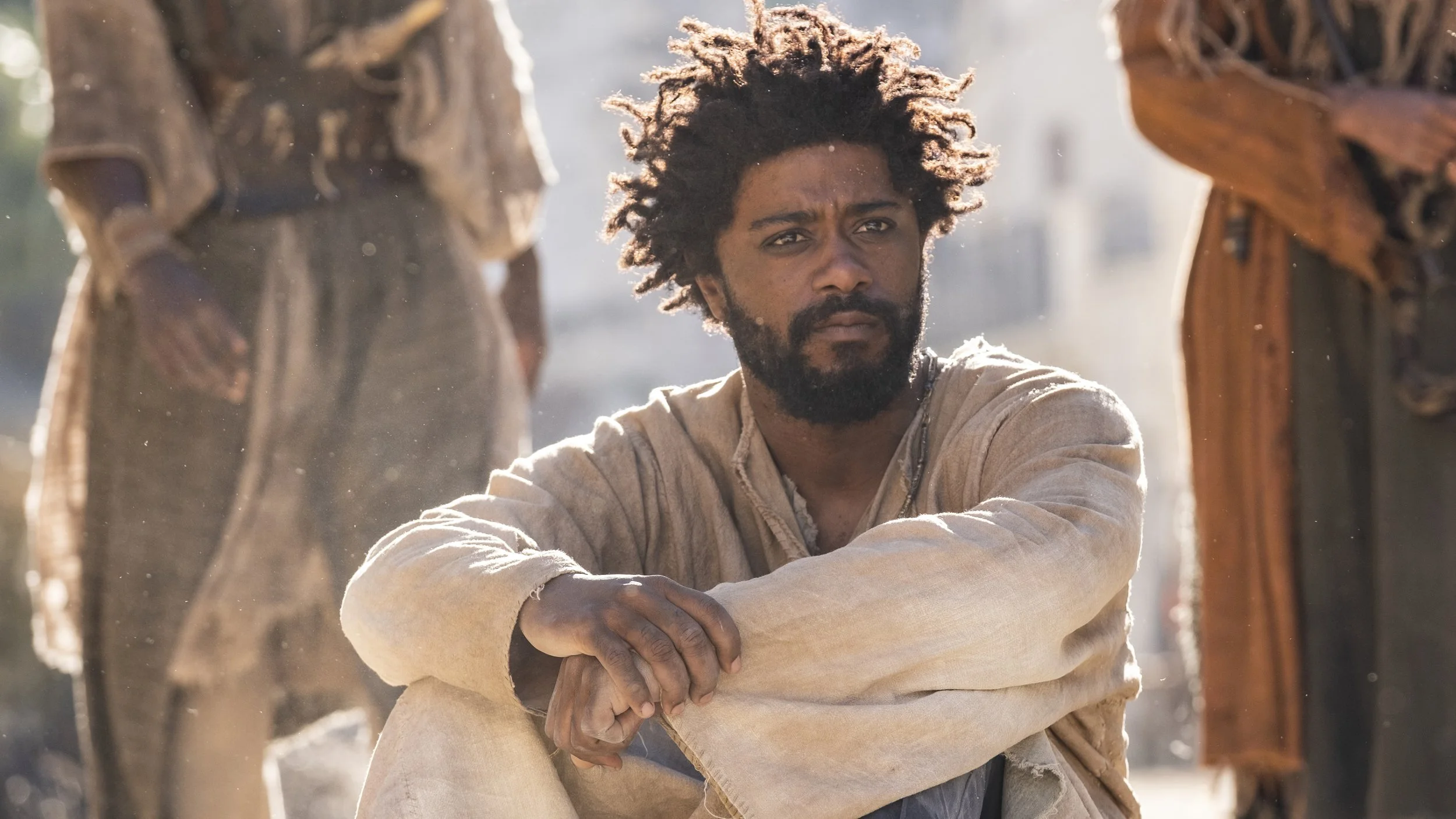The Book of Clarence: Miraculously Straddles the Line Between Send-Up and Sacrilege
By Chris Knight
Rating: A-
Religion is easy. Comedy is hard. And combining the two is like mixing fire and brimstone - people are likely to get hurt.
All of which makes The Book of Clarence something of a miracle. It’s a well-made, witty movie that manages to send up some of the tropes of organized religion while simultaneously signaling that it is firmly on the side of the believers, and also managing not to annoy any atheists in the house. Jesus, it’s good.
The setting is Jerusalem, A.D. 33. Clarence (LaKeith Stanfield) and his best friend Elijah (RJ Cyler) have just lost a chariot race through the lower town against a woman Bible readers will know well by name, if not vocation. It’s Mary Magdalene: Street Racer (Teyana Taylor). Call it The Fast and Ben-Hur-ious.
LaKeith Stanfield is a wannabe Messiah in The Book of Clarence.
Heavily in debt to local moneylender Jedediah the Terrible (Eric Kofi-Abrefa), the hapless Clarence hits on the idea of joining the brand-new religion being practiced by his twin brother, Thomas: Christianity. (Thomas, in a bit of inspired casting, is also played by Stanfield.)
Alas, efforts to become the 13th Apostle do not go well, beginning with a run-in with an angry, violent character I’m going to christen John the Slaptist. And so, Clarence reasons that, if you can’t join ‘em, beat ‘em. He pays a visit to Jesus’s mom (Alfre Woodard) with a plan to learn her son’s “tricks” and create his own messianic (and moneymaking) movement. Things get off to a frosty start there as well, when Mary tries to explain the Virgin Birth and he replies: “This is the story you’re running with?”
There’s more than a little of Monty Python’s Life of Brian in this story of an alternate Messiah occasionally crossing paths with the real Jesus of Nazareth. But Python largely steered clear of specifics - the Sermon on the Mount might be His only appearance in that film, and it’s where the hard-of-hearing crowd thinks He’s bestowing blessings on the cheesemakers and the Greeks.
In The Book of Clarence there are actual miracles afoot, though often frustratingly just out of sight of the main character, who holds no truck with God, and further holds that knowledge is superior to belief. (Crucially, Clarence never bothers to wade any deeper into the waters of epistemology, let alone to walk on top of them.)
And so, Clarence gins up his own religion, while also trying to win the hand of Virinia (Anna Diop), with whom he is “spirit over sandals in love,” though she is rather unfortunately also the sister of Jedediah the Terrible. On the plus side, he manages to pick up his own Apostle of sorts, a freed gladiatorial combatant who believes himself to be immortal, and lives every day like it’s not his last.
And I haven’t even gotten to the film’s “Book III,” the chapter that introduces James McAvoy as a grimacing Pontius Pilate, and finally explains why Benedict Cumberbatch was in the opening credits. This might also be where the film starts to stumble just a little in its weaving together of sacredness and sacrilege. Certainly, its all-Romans-are-white-and-evil ethos seems simplistic at best.
But give it up all the same for British writer/director/musician Jeymes Samuel on just his second feature, after the 2021 black western The Harder They Fall. The Book of Clarence features some exciting cinematography (especially in that opening race), a little magic realism (apparently in the first Century, drugs could make you literally high) and a soundtrack and score crafted by Samuel himself, and featuring a heavy dose of - what else? - soul.
Best of all, it wears its ideology proudly on its tunic sleeve. The movie probably won’t make disbelievers count themselves among the faithful, and I can guarantee no one going to go the other way. But it can be enjoyed equally by both camps. And heaven knows we need more of that in the world today.
The Book of Clarence. Directed by Jeymes Samuel. Starring LaKeith Stanfield, RJ Cyler, and Anna Diop. Opens in theatres on Jan. 12.



